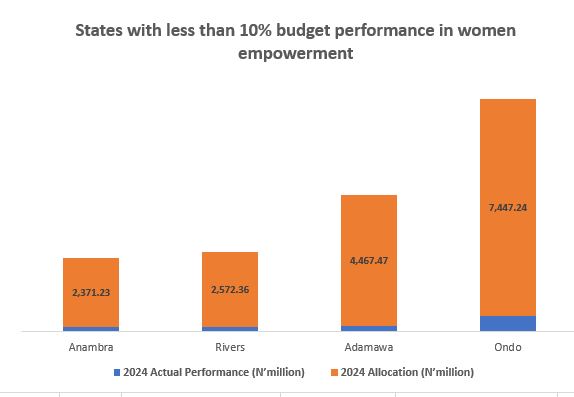Sometime in early July 2012, it started with drizzling rain, and by mid September of that year, it had developed into flash flood across some states. But surprisingly, Nigerians were helplessly watching the scenario until it became devastating across the country, especially along the coastal areas.
By November 5, 2012 when the floods eventually ended, Nigeria counted her losses to the worst flood ever recorded in the then 40 years history of the country.
The flood killed 363 people, over 2.1 million people were displaced, estimated total of seven million others were affected, while the damage and losses were estimated at N2.6 trillion.
While government was quick to attribute the deadly flood to seasonal flash floods, overflowing of Lamingo dam near Jos and especially the release of water from the Lagdo Reservoir in Cameroon, the National Emergency Management Agency (NEMA) was busy counting the losses of lives and property that should have been saved if proactive measures were taken ahead to rechannel the flood or reduce the impact. Sadly, the country learnt little or no lessons from that ugly experience of 2012 as flood continued its rampage in subsequent years but in lesser magnitude; though not attributable to the proactiveness to emergence response by government and its agencies.
Once again, the “seers” have seen the future and warned Nigerians against an impending flood with huge emergence exigencies.
Late June this year, the National Hydrological Services Agency warned that 35 states in Nigeria would experience severe flooding as the rainy season begins due to the flooding in eight major rivers across the country and advised residents living in flood prone areas to relocate. The question many are asking is relocating to where, in a country where you already have countless Internally Displaced Persons camps (IDPs). The sense for many is rather preventive measures to re-channel the flood and reduce to the minimum the impact of the flood on lives and property in areas that are most vulnerable.
The development also calls government to order and tasks the readiness of its agencies, especially NEMA in living up to their statutory mandates.
While relocation may be a short term measure, Kese Tefar, an agric entrepreneur/lecturer who lost crops and farmhouse to the 2012 flood in North Bank, Makurdi, Benue State, is worried that despite a major flood catastrophe in recent time, there is low level of awareness of flood risk, which according to him, is increasing the rate of development on floodplains. “The regulatory agencies keep mute over development of houses and other constructions on floodplains. It is even sad that government sell buffer zones created for erosion and wait until there is an emergency to start shouting, and probably use pictures of relief materials they donated to victims of flood for political campaign. Flood control is not rocket science, we should learn from other flood vulnerable countries and desist from the fire brigade approach to it”, Tefar laments.
Tamarapreye Endutimi, a volunteer of the Nigerian Red Cross in the Ovom State Sports Complex in Yenagoa, where 3,000 people slept for weeks during the 2012 overwhelming flood, notes that the country still lacks capacity for emergency situations and should do everything to prevent it. “If flood like the magnitude of the 2012 happens again, the number of victims and damages will double because there is no sign that we are ready for emergency. The quick response for the Ebola case was divine and nobody should use that as yardstick for our readiness for emergency”, Endutimi, who is now a lawyer, explains.
Speaking on the development, Lukman Adeoti, associate professor of geophysics at Geosciences department, University of Lagos, says flood is a seasonal occurrence caused by many factors, especially rise in water level, poor drainage pattern, desertification, carbon emissions, distortions of ecological systems and others.
Having known the causes, the university don thinks there should be proactive efforts at curbing the causes emanating from the action of man by improving on drainage pattern, reducing carbon emissions, planting trees to fight desertification and allowing the ecological system to be the way nature made it.
Toeing the lines of the Geophysics professor, Ikenna Ilemchukwu, an environmentalist and another university don, says prevention has always been better than any emergency and remedy action. He is worried over the ineffectiveness of efforts towards tackling flooding across the country, especially when actions should have been in place to checkmate controllable flood and reduce the level of impact of flood induced by climate change.
“We have had several forums, seminars and workshops on flood and environmental protection across the states, but the issue has been implementation and monitoring to ensure people and even organizations are complying with recommended directives. People are still building on drainage, cutting down trees and burning forests that are natural buffer zone against flood, there is so much poverty in most coastal areas that paying attention to the warnings of imminent flood occurrence is more or less a charade to the poor residents”, Ilemchukwu says.
Instead of waiting till emergency situation, Nkwunonwo Ugonna of School of Earth and Environmental Sciences, University of Portsmouth, UK, in his research article entitled: ‘Flooding and Flood Risk Reduction in Nigeria: Cardinal Gaps’, suggests more robust and scientific approaches to flood risk reduction such as: flood modeling, vulnerability assessment, and alignment to the focus of flood risk reduction in Nigeria with the objectives of such a task in more developed countries.
However, government is promising more action than words this time to preventive measures and consequent emergency situations, hence the National Hydrological Services Agency sounded the flood warning earlier and getting Nigerians ready to tackle it better than previously when they were taken by surprise.
“The agency is sensitising the general public, especially those living in flood- prone areas, on probably flooding events and advising them to take proactive steps to avoid loss of lives and property, damage to crucial infrastructure, disruption of socio-economic activities and in some cases, displacement of people in the affected areas”, Moses Beckley, director general, National Hydrological Services Agency says in reaction to efforts of the agency at preventing unnecessary loss of lives and properties.
As well, Mustapha Yunusa Maihaja, the newly appointed director-general of the National Emergency Management Agency (NEMA), assured Nigerians when he resumed office on April 21, 2017 that he would reposition the Agency for effective disaster management in the country.
“NEMA should come out with their emergency plans, seek early collaborations with necessary stakeholders and offer monthly monitoring report on flood so that there will be data to work on for subsequent occurrences and planning. This is time to retrain members of National Youth Service Corps for emergencies instead of wasting money in hiring at late hours,” Maihaja said.
“Everybody both government and individuals should do whatever we can to prevent bad situations from becoming emergencies because huge sum of resources that would have built schools, hospitals and roads are channeled into daily feeding, security, and prevention of sicknesses from spreading at the IDP camps. Nobody is happy to be a refugee in his/her own country, but if we refuse to listen to the warning of the National Hydrological Services Agency and fail to do the little we can to reduce the impact of the imminent flood, we are simply going to build more IDP camps and waste resources we would have used for developmental goals on taking care of the homeless in our midst”, Mercy Okeh, a director of an Abuja-based nongovernmental organisation for vulnerable children, says.
While regarding most government assurances and preparedness for emergency as rhetoric, especially NEMA, majority of Nigerians think government should specify the measures it is putting in place and seek collaborations now to prevent situations from getting worse and requiring emergencies because the number of IDPs, their sorry state, and shanty camps across the country are not encouraging for a country like Nigeria.
OBINNA EMELIKE










